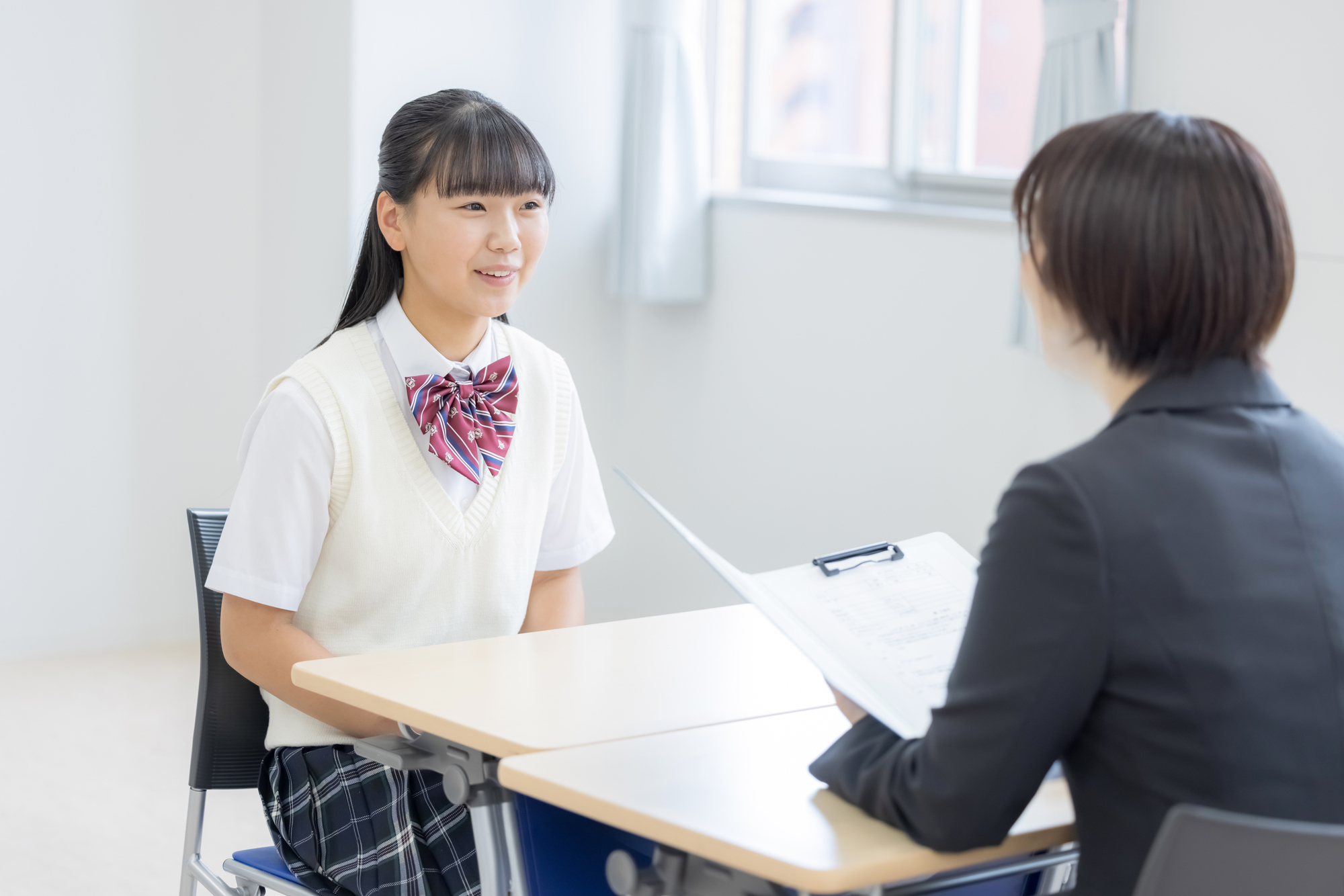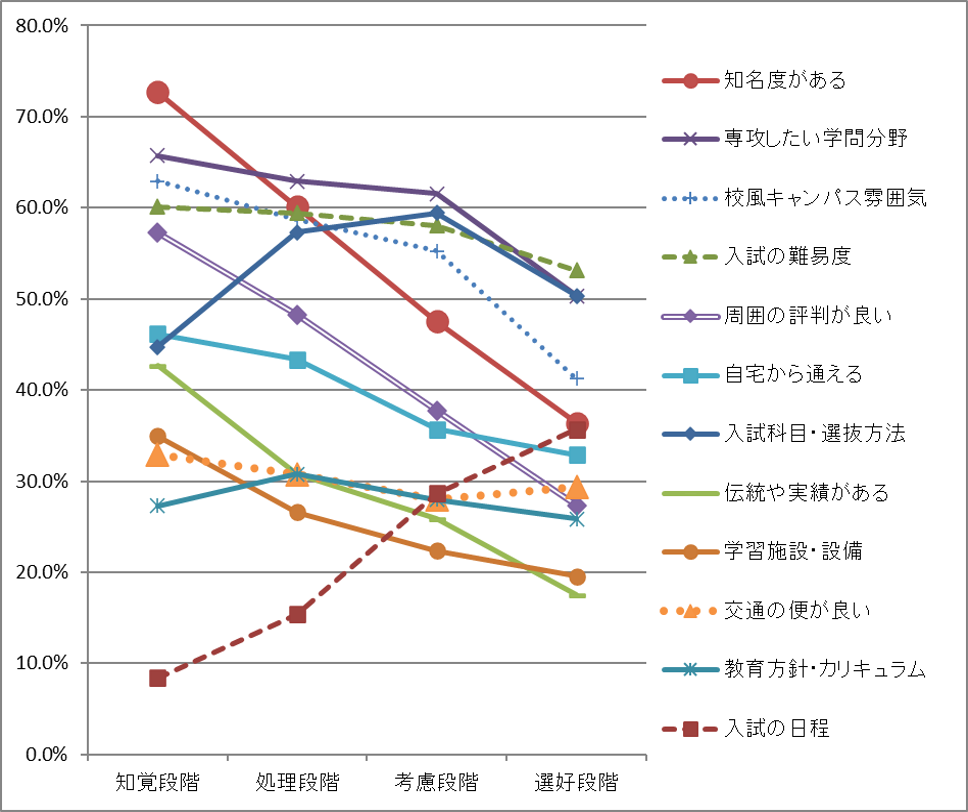Items to be emphasized in university selection change depending on the time

As with the Kawaijuku "Longest Year School Student Questionnaire" and the Ministry of Education, Culture, Sports, Science and Technology "21st Century Birth Longitudinal Survey" that I saw at the beginning, there are multiple categories of university selection criteria.Roughly speaking, it will be the content of study, entrance exams, brand power, location / environment, etc., but I would like to know more about how each influences each other.From the university's point of view, what should we focus on to recruit students?There is no clear answer to this, but I think one idea is that the categories of important items will change depending on the time of year.
The data below is a survey by the author, but since the survey period is a little old and it is only for liberal arts students, I would like you to see it as a reference, but in the process of narrowing down the universities to take the entrance examination, the time of the entrance examination is You can see that the items to be emphasized change as you get closer.To supplement this period, "when I started to find out what kind of school there is" = perception stage, "when I was finally interested in the school I entered" = processing stage, "first-choice school as an examination school" "Determined time" = consideration stage, "final admission decision time" = preference stage.This relies on the idea of a set of considerations for consumer behavior.However, when you look at this, you can say that it looks "at first" ...
<Figure: Focused on university selection (multiple answers) 143 undergraduate students in social sciences (2008)>

